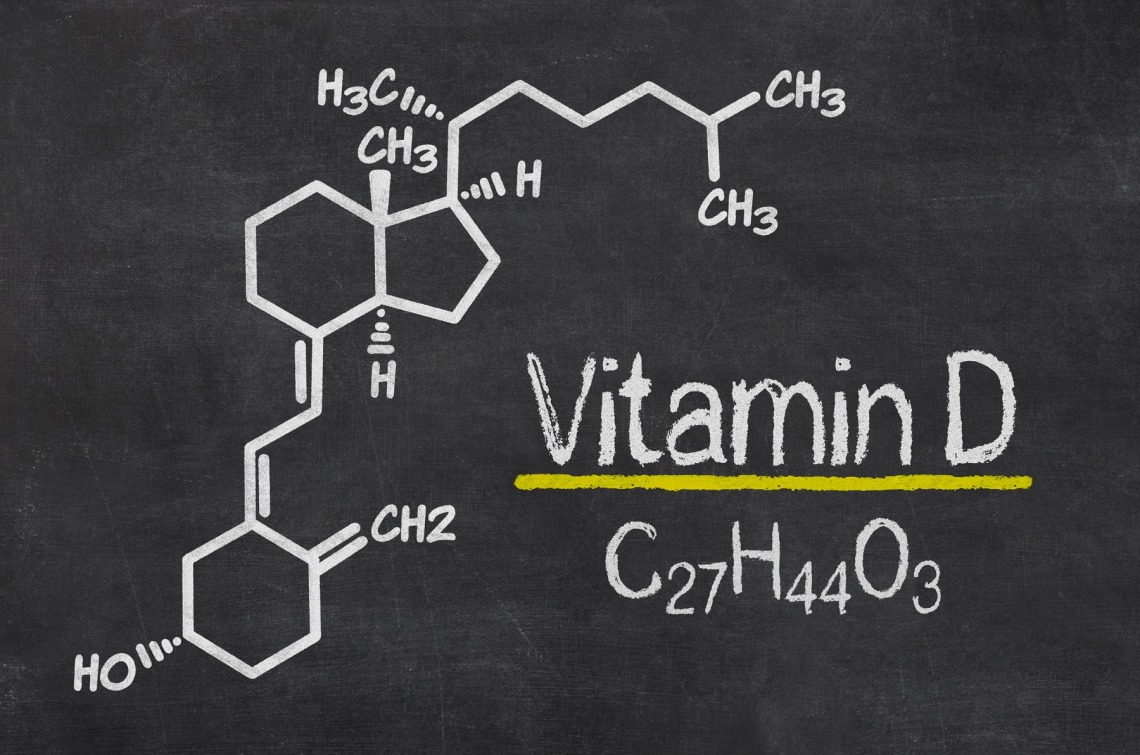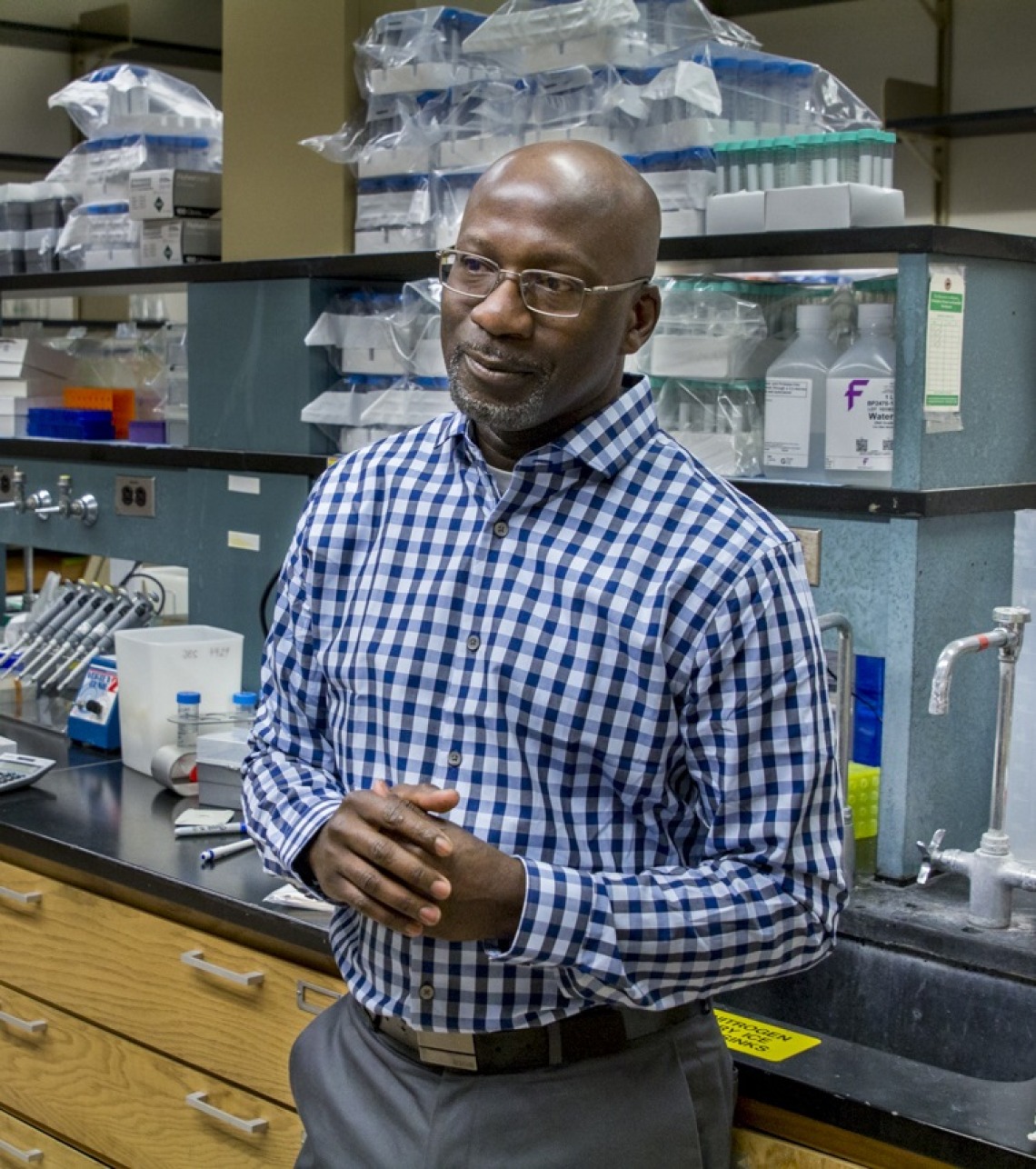How does vitamin D affect prostate cancer in African American men?
Prostate cancer is the most commonly occurring cancer in men. However, the chance that someone will get prostate cancer depends on a lot of different factors.

Prostate cancer is the most commonly occurring cancer in men. However, the chance that someone will get prostate cancer depends on a lot of different factors.
On average, about 13 percent of men will be diagnosed with prostate cancer at some point in their lifetime. But, that risk climbs to 19 percent for African American men. Even more, African American men who get prostate cancer are more than twice as likely to die from the disease.
Why does prostate cancer in African American men tend to be severe? What is causing this disparity in men with African ancestry? How we can reduce this risk? These are the questions driving the research of University of Arizona Professor Rick Kittles, PhD.

African American men who get prostate cancer are more than twice as likely to die from the disease.
Smoking, older age and family history all increase the risk for prostate cancer, beyond just skin color. Genetics is one of the major factors driving prostate cancer risk. Changes in certain genes can make some people more likely to get cancer, can be the reason that some types of cancers run in families, and even can change how serious cancer is once a person has been diagnosed. Men with particular DNA sequence variants have a higher risk of developing prostate cancer, according to research from Dr. Kittles and his collaborators. These variants are common in men with African ancestors, and explain part of the increase in prostate cancer risk in African Americans. But, that doesn’t paint the whole picture.
“Precision medicine is more than just genetics,” says Dr. Kittles, director of the Division of Population Genetics, in the University of Arizona Health Sciences Center for Applied Genetics and Genomic Medicine and professor of surgery in the Division of Urology at the UA College of Medicine – Tucson. Instead of focusing completely on the DNA, Kittles and his team have been looking at how the environment could be influencing prostate cancer risk.
In the 1990s, scientists examined groups of people with the highest rates of prostate cancer. They figured out that men who live in northern parts of the world, older men and men with African ancestry all had the highest rates of prostate cancer. Interestingly, this mirrors patterns of vitamin D deficiency: people from all of those groups produce less vitamin D than other individuals. More recent studies have shown that vitamin D deficiency may partially explain why men with dark skin tend to develop more severe forms of prostate cancer.

Vitamin D helps the body absorb and process calcium to build healthy bones and helps regulate the immune system.
Vitamin D helps the body absorb and process calcium to build healthy bones and helps regulate the immune system. We get vitamin D in two ways: from our diet or from exposure to sunshine. There are few sources of vitamin D in our diet, and most people get their daily dose of vitamin D through supplements or sunlight. Our skin uses the sun’s UV energy to fuel a chemical reaction that produces vitamin D.
Melanin is the pigment in skin that determines whether our skin is light or dark. The more melanin that people have, the darker their skin tone. Melanin acts as a natural sunscreen, absorbing UV light from the sun and protecting skin from sunburns and the UV damage that can lead to skin cancer. However, since melanin absorbs UV light, it competes with the molecules that produce vitamin D for the energy that is needed to fuel that chemical reaction. In regions of the world where sunshine is intense, people with dark skin are able to protect themselves from damaging UV rays while producing enough vitamin D to maintain proper bone and immune health. But, dark skinned people who live at higher latitudes or who spend the majority of their time indoors aren’t able to absorb as much UV light from the sun to produce adequate levels of vitamin D.

UAHS researcher Rick Kittles is a national leader on health disparities and the role of genes and environment in disease. (Photo: Bob Demers/UANews)
Dr. Kittles and his group are investigating how chronic vitamin D deficiency, which is common in African Americans, may contribute to prostate cancer development and severity. The interaction of vitamin D with inflammation and the immune system is of particular interest to Dr. Kittles.
Research has shown that the local environment surrounding the tumor in African American men with prostate cancer is different than what is seen in men with European ancestry. Both the immune and inflammatory response surrounding the tumor is altered in men with low vitamin D levels. Dr. Kittles and his team are looking at how genes respond to chronic vitamin D deficiency, and how that influences prostate cancer.
One avenue to alleviating this disparity could be through vitamin D supplements. Dr. Kittles is hoping to start clinical trials soon to see whether supplementation with vitamin D in African American men helps slow progression and ease the severity of prostate cancer. It is likely that a combination of genetics and vitamin D deficiency can largely explain why prostate cancer tends to be more severe in African American men. Alleviating vitamin D deficiency in this population is a simple option.
Notes Dr. Kittles, “Supplementation may allow us to decrease the disparities that we see in prostate cancer between African Americans and other ethnic groups.”
About the Author
Valerie Schaibley, PhD is the Administrator for the Center for Applied Genetics and Genomic Medicine at the University of Arizona Health Sciences, where she works to advance precision health in the state of Arizona. She received her PhD in Human Genetics from the University of Michigan and worked for several years in industry, developing genetic tests for precision medicine applications.

